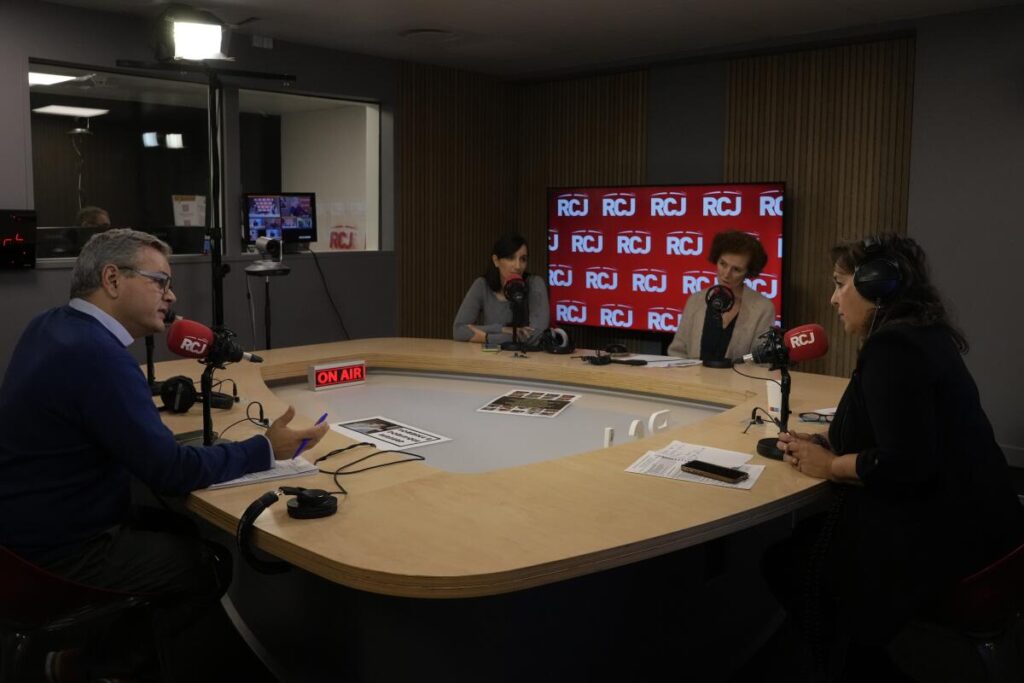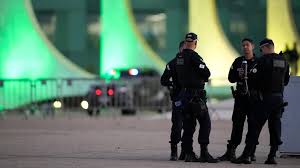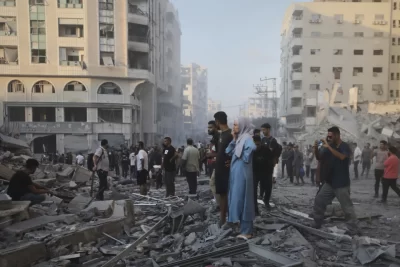
French Jewish groups have set up a helpline to provide support to people in the community traumatized by the latest Israel-Hamas war — from families who have lost loved ones in the Middle East to parents anxious about their children’s reaction to the conflict and Holocaust survivors.
Since it was launched a few days after the deadly Oct. 7 Hamas incursion into southern Israel, dozens of people have called in every day, organizers said.
Fabien Azoulay, the deputy director general in charge of solidarity at the United Jewish Social Fund, or FSJU, which brings together many associations in France, said that over 60 psychologists, psychiatrists and child psychiatrists are volunteering to call back those who leave messages on the helpline number.
People of all ages are seeking support, from teenagers to parents and elderly people, Azoulay stressed.
For some survivors of the Holocaust, “it brings back childhood traumas they thought they’d never see again,” Azoulay said. “They see it in the country (Israel) that was supposed to be the refuge for Jews. So it’s very, very traumatic.”
Radio of the Jewish Community, which is operated by the fund, also noted widespread mental health needs. The radio received almost 300 questions from listeners when organizing its first show about mental health issues, focusing on children’s exposure to stressful news.
Marie-Claude Egry, a clinical psychologist, is volunteering for the helpline and also participated in radio shows on the issue.
She said parents’ first concern is about their children’s actual safety amid a growing number of antisemitic acts in France.
The Interior Ministry reported 719 antisemitic acts between Oct. 7 and Oct. 27, and 389 arrests — providing no other details on those involved or the nature of the acts. The government said figures also include threats against Jewish people.
Last week, the front door of the home of a Jewish couple in their 80s in Paris was set on fire. Paris Mayor Anne Hidalgo denounced it as an “antisemitic act.”
Since the outbreak of the war and the subsequent uptick in antisemitism, France has deployed 7,000 additional troops and heightened security at hundreds of Jewish schools, synagogues and other places in the country.
Egry said the mother of a nine-year-old, who hadn’t discussed the Israel-Gaza war with her son yet, asked him if he knew why there were police officers outside the school.
His answer astonished the mother: “Of course, I know that when there’s a war in Israel, everyone in France is going crazy.”
Parents also are worried about potential shocking remarks and debates over the conflict their children may face, the psychologist said.
“Young people are involved here as much as there, from a distance, through news from family and friends,” Egry added. “We’re far away and at the same time very close.”
France, which has Europe’s largest Jewish and Muslim communities, has seen both gatherings to support Israel and demonstrations in solidarity with Palestinians.
David Krausz, a clinical psychologist also volunteering for the helpline, said most questions raised cannot be fixed with some definitive advice.
On the contrary, he said, mental health issues prompted by the Mideast crisis often reveal a “more deeply-rooted malaise, which may not have been on the surface, but which, in view of the dramatic situation we’re experiencing, triggers something … that deserves, and even requires, specialized long-term care.”
He cited the example of a nine-year-old girl who became so anxious she didn’t want to go to school anymore, and an 18-year-old student who was in Israel when the war started and had to return urgently, traumatized by what had happened.
The trauma from the war has also deeply affected the Palestinian diaspora across the world, including in France where the community is estimated to number a few thousand people. Many feel a sense of helplessness and hopelessness as they struggle to hear from loved ones in Gaza.
Palestinians fear a repeat of the most traumatic event in their tortured history — their mass exodus from what is now Israel during the 1948 war surrounding its creation.
Palestinians refer to it as the Nakba, or “catastrophe,” when an estimated 700,000 Palestinians — a majority of the prewar population — fled or were expelled from what is now Israel in the months before and during the war, in which Jewish fighters fended off an attack by several Arab states.




